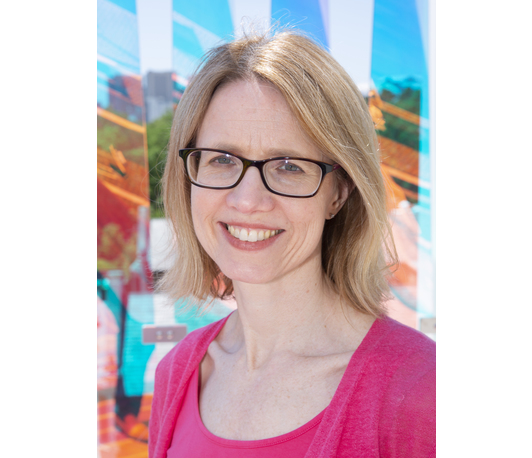Ernst Dieter Gilles Lecture Award: Prof. Martha Grover, Continuous biocatalytic crystallization to address beta-lactam supply challenges
Prof. Martha Grover: Continuous biocatalytic crystallization to address beta-lactam supply challenges
- Datum: 14.12.2023
- Uhrzeit: 16:00 - 17:30
- Vortragende(r): Prof. Martha Grover
- Professor in the School of Chemical and Biomolecular Engineering at Georgia Institute of Technology, Atlanta, USA, and Associate Chair for Graduate Studies. Joint appointment with Savannah River National Laboratory.
- Ort: Hybride Veranstaltung: vor Ort am Max-Planck-Institut Magdeburg und via Zoom
- Raum: Großer Seminarraum "Prigogine"
- Kontakt: sek-pse@mpi-magdeburg.mpg.de

Ernst Dieter Gilles Lecture Award
Das Max-Planck-Institut für Dynamik komplexer technischer Systeme in Magdeburg lädt Sie sehr herzlich ein zum ersten Vortrag im Rahmen des Ernst Dieter Gilles Lecture Award.
Mit diesem Preis würdigt das Institut herausragende wissenschaftliche Leistungen auf dem Gebiet der Systemtheorie, Systemdynamik und Regelungstechnik, im Gedenken an seinen 2019 verstorbenen Gründungsdirektor Prof. Dr.-Ing. Ernst Dieter Gilles.
Erstmals vergibt das Max-Planck-Institut Magdeburg im Jahr 2023 diese Auszeichung und würdigt damit die US-amerikanische Chemieingenieurin Prof. Martha Grover in Anerkennung ihrer Beiträge zur Systemdynamik und -steuerung, einschließlich neuartiger Methoden und deren Anwendung auf eine breite Palette von Systemen.
Martha Grover ist Professorin an der School of Chemical & Biomolecular Engineering am Georgia Institute of Technology, Atlanta, USA,und Associate Chair für Graduiertenstudien. Sie hat eine gemeinsame Stelle mit dem Savannah River National Laboratory. Ihre Forschung befasst sich mit der molekularen Selbstorganisation und der Entstehung von biologischen Funktionen.
Abstract
Beta-lactam antibiotics are a critical tool for the treatment and prevention of many types of infection; however repeated shortages of these medicines continue to occur partly because of geographically limited production. In this study, we designed an intensified process for the steady state production of amoxicillin and cephalexin drug product at a rate of 10 doses/hour. Reactive crystallization of the drugs increases selectivity and productivity, making biocatalytic synthesis feasible but complicating the separation of product crystals, aqueous solvent, and catalyst, which must be recycled. To this end, we designed an immobilized biocatalyst which is separated from the crystals based on their smaller size. A wet mill loop keeps the crystal size small by promoting nucleation and breakage while avoiding grinding of the catalyst particles. Extensive process analytical technology, process modeling, and stress testing ensure a robust process and that drug quality exceeds regulatory requirements. Multi-day campaigns showed that steady operation can be maintained for at least 72 hours, but that productivity slowly diminishes as the catalyst particles are encrusted with crystals. Dissolution of encrusted crystals restores catalytic activity. Swapping of beta-lactam cores and side chains can produce different beta-lactam antibiotics to suit immediate demands, made possible by the biocatalyst’s promiscuity. The small footprint and aqueous waste stream enable deployment at point of care; however, the process can also be scaled up to diversify global production. For the scaled-up process, where conversion, yield, and process mass intensity become critical, we demonstrate recovery and recycling of unreacted substrates.
Short Biography
Martha Grover is a Professor in the School of Chemical & Biomolecular Engineering at Georgia Tech, and Associate Chair for Graduate Studies. She holds a joint appointment with Savannah River National Laboratory. She earned her BS in Mechanical Engineering from the University of Illinois, Urbana-Champaign, and her MS and PhD in Mechanical Engineering from Caltech. She joined Georgia Tech as an Assistant Professor in 2003. In 2011 she received the Outstanding Young Researcher Award from the Computing and Systems Technology Division of AIChE, and in 2018 the Himmelblau Award for Innovations in Computer-Based Chemical Engineering Education. Her research program is dedicated to understanding, modeling, and engineering the self-assembly of atoms and small molecules to create larger scale structures and complex functionality. Her approach draws on process systems engineering, combining modeling and experiments in applications dominated by kinetics, including film deposition, crystal growth, and origins of life chemistry.
Teilnahme per Zoom
https://eu02web.zoom-x.de/j/67362577144?pwd=TWNZSGRjSTdZYkR0bTBmOHBqTWpUUT09
Meeting-ID: 673 6257 7144
Kenncode: 734623